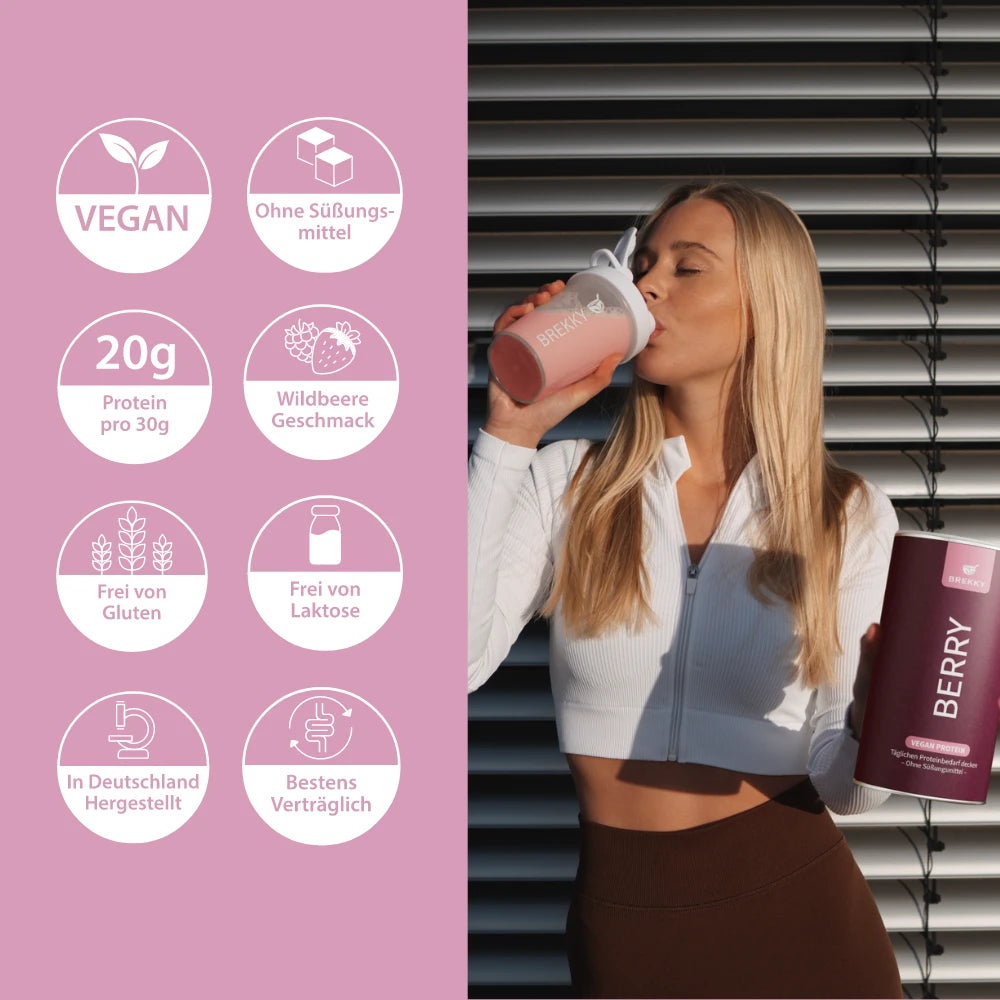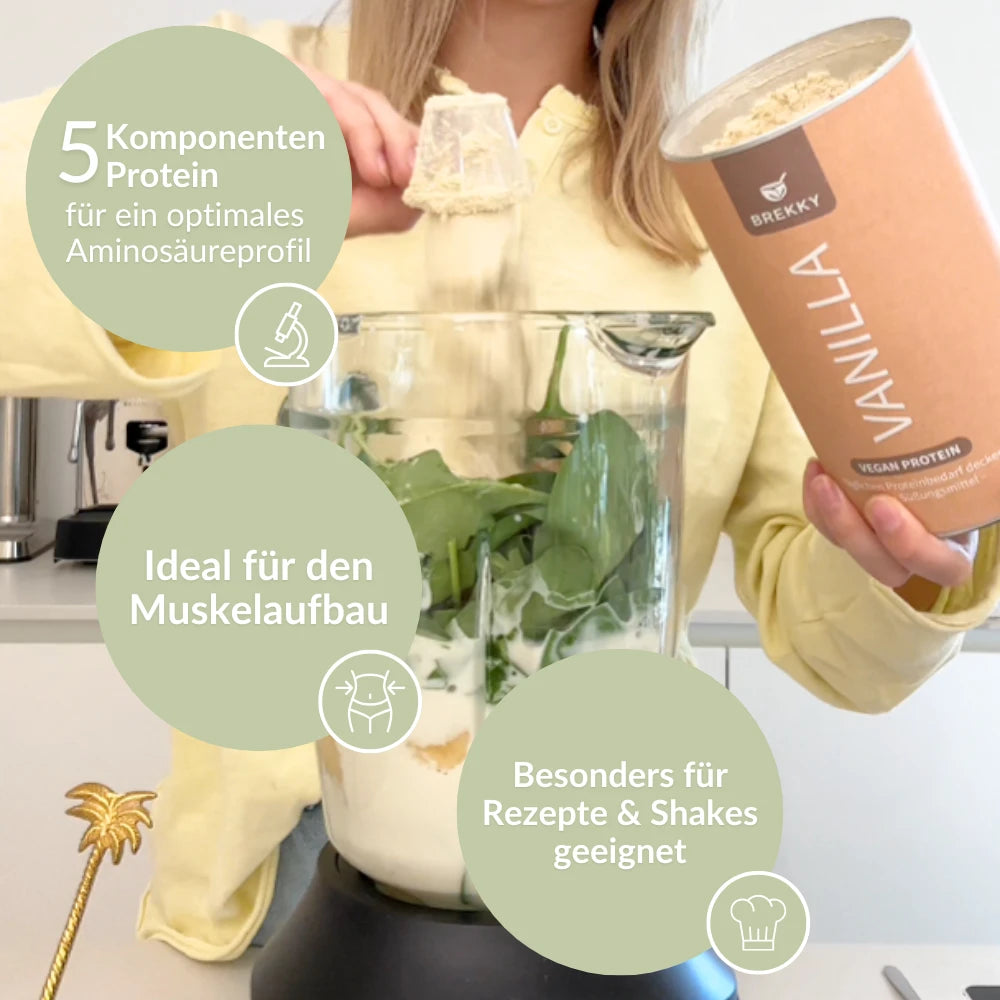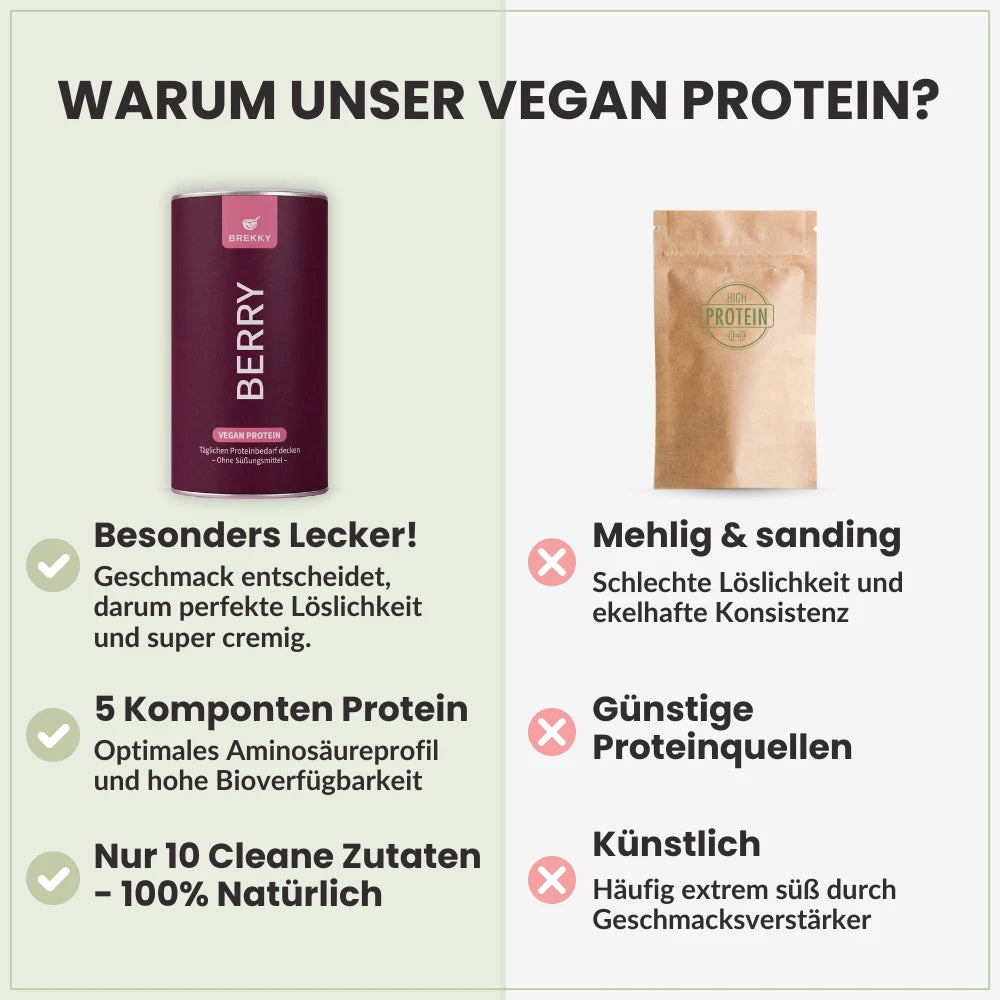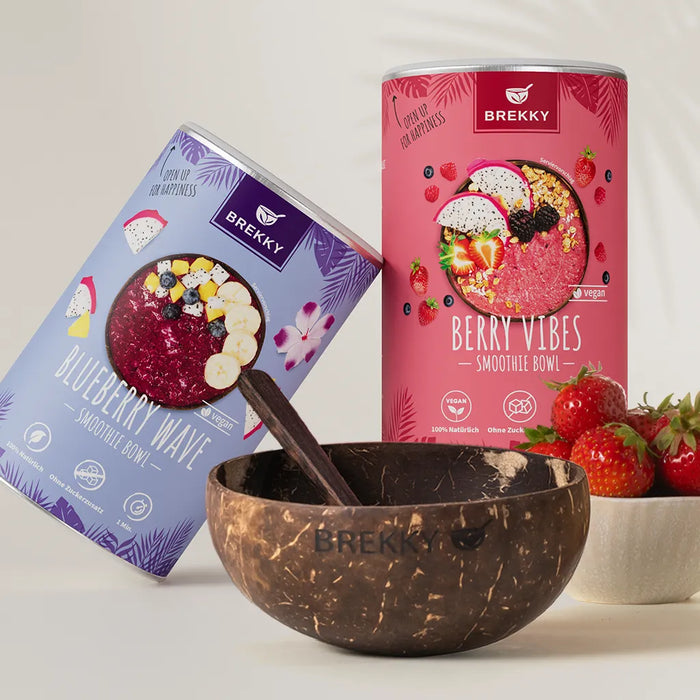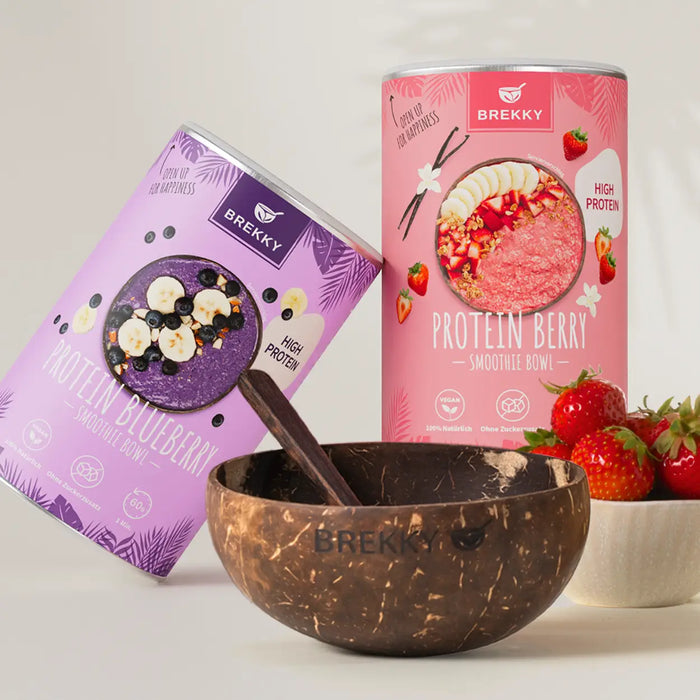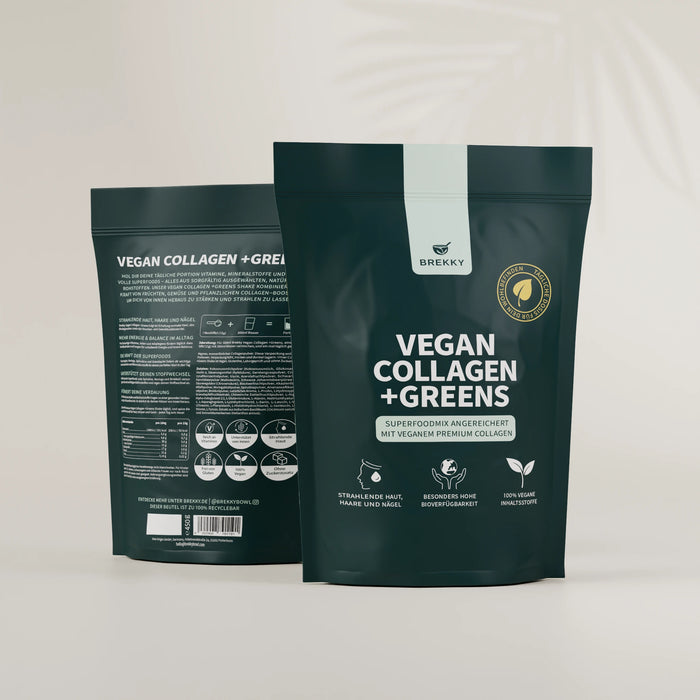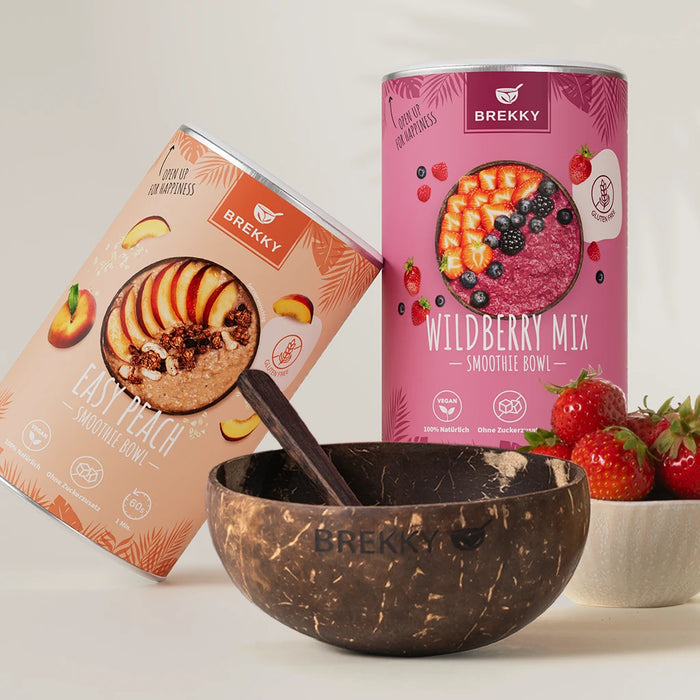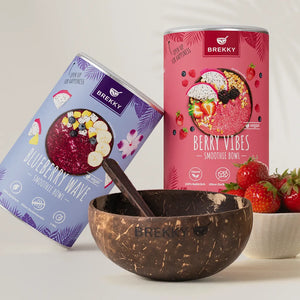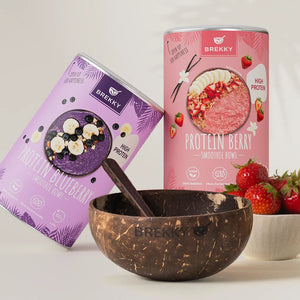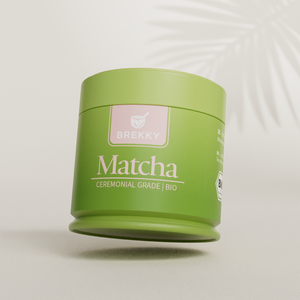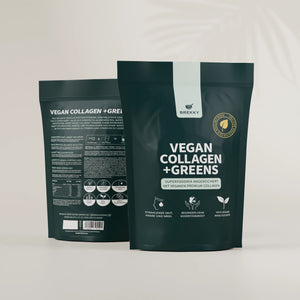Proteinreiches Frühstück: So startest du mit viel Eiweiß voller Energie in den Tag
Inhalt
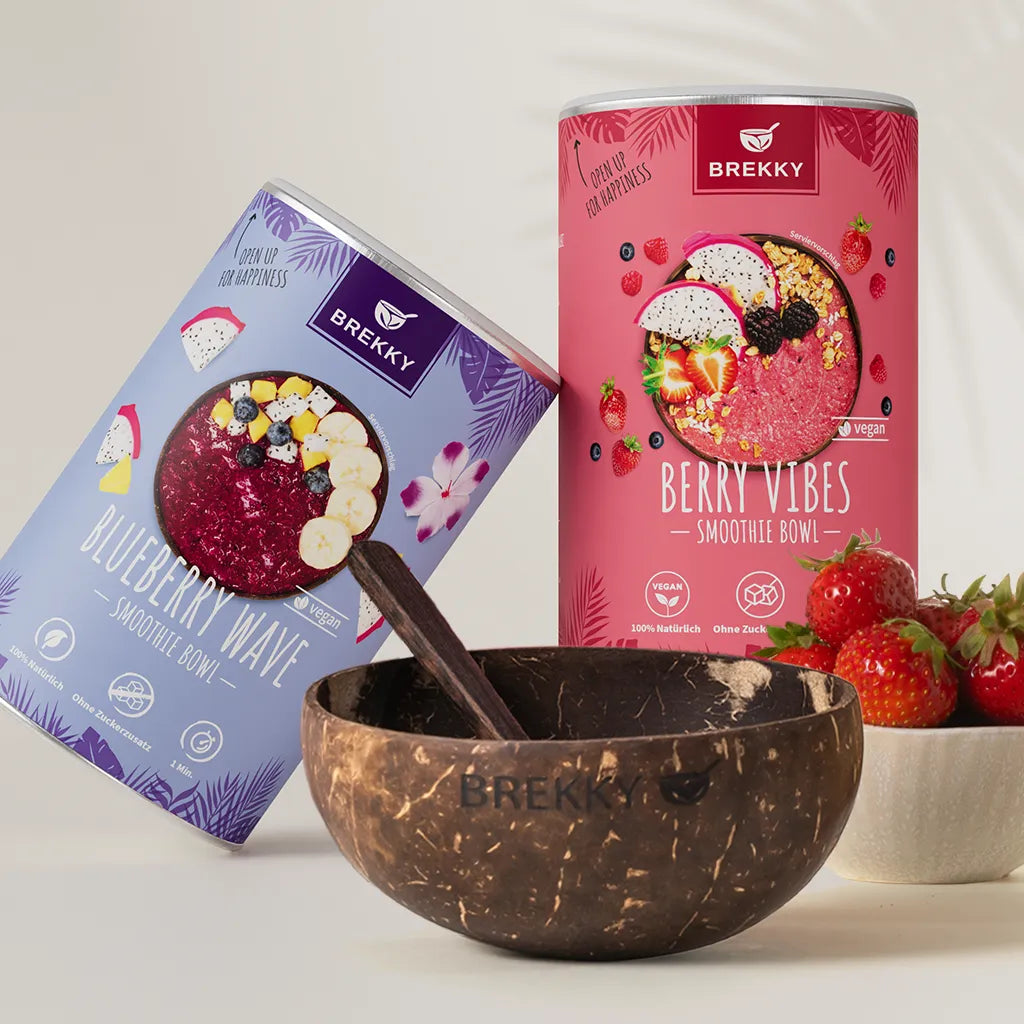
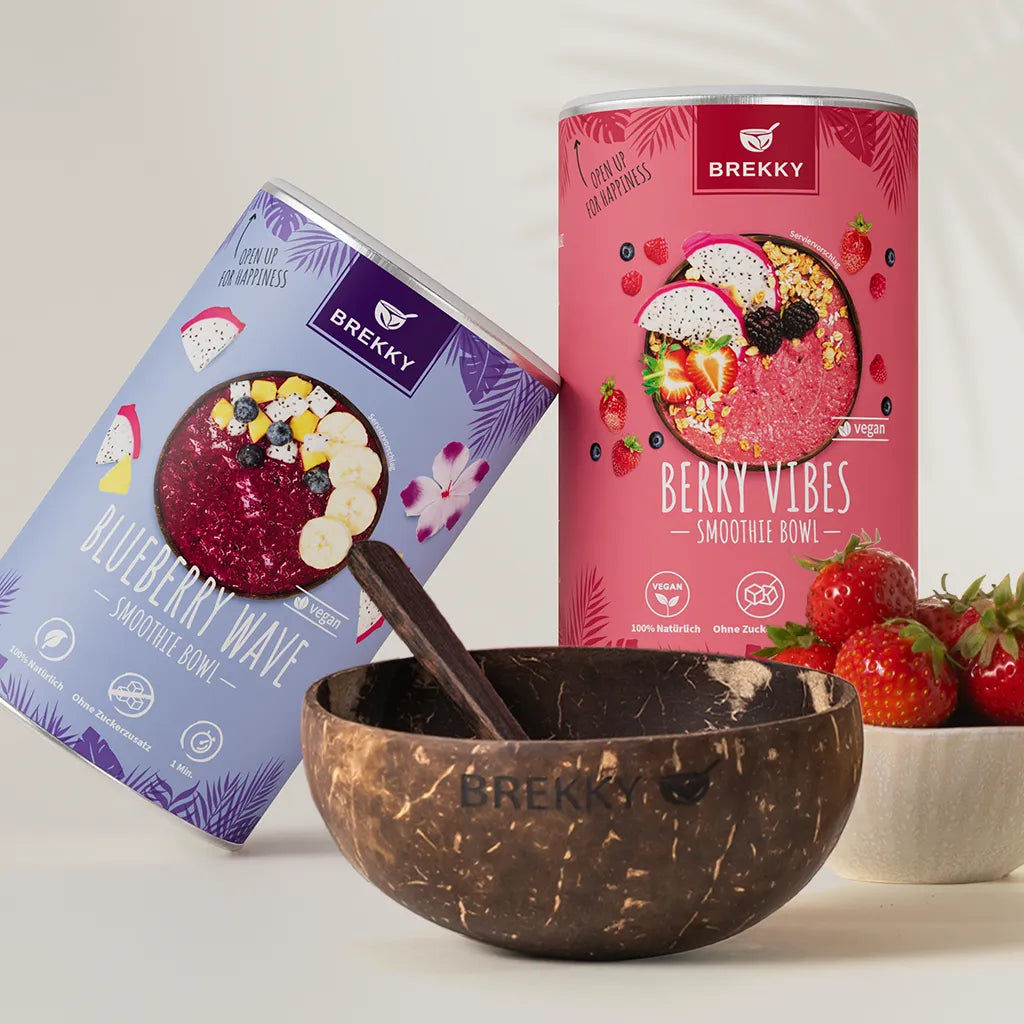

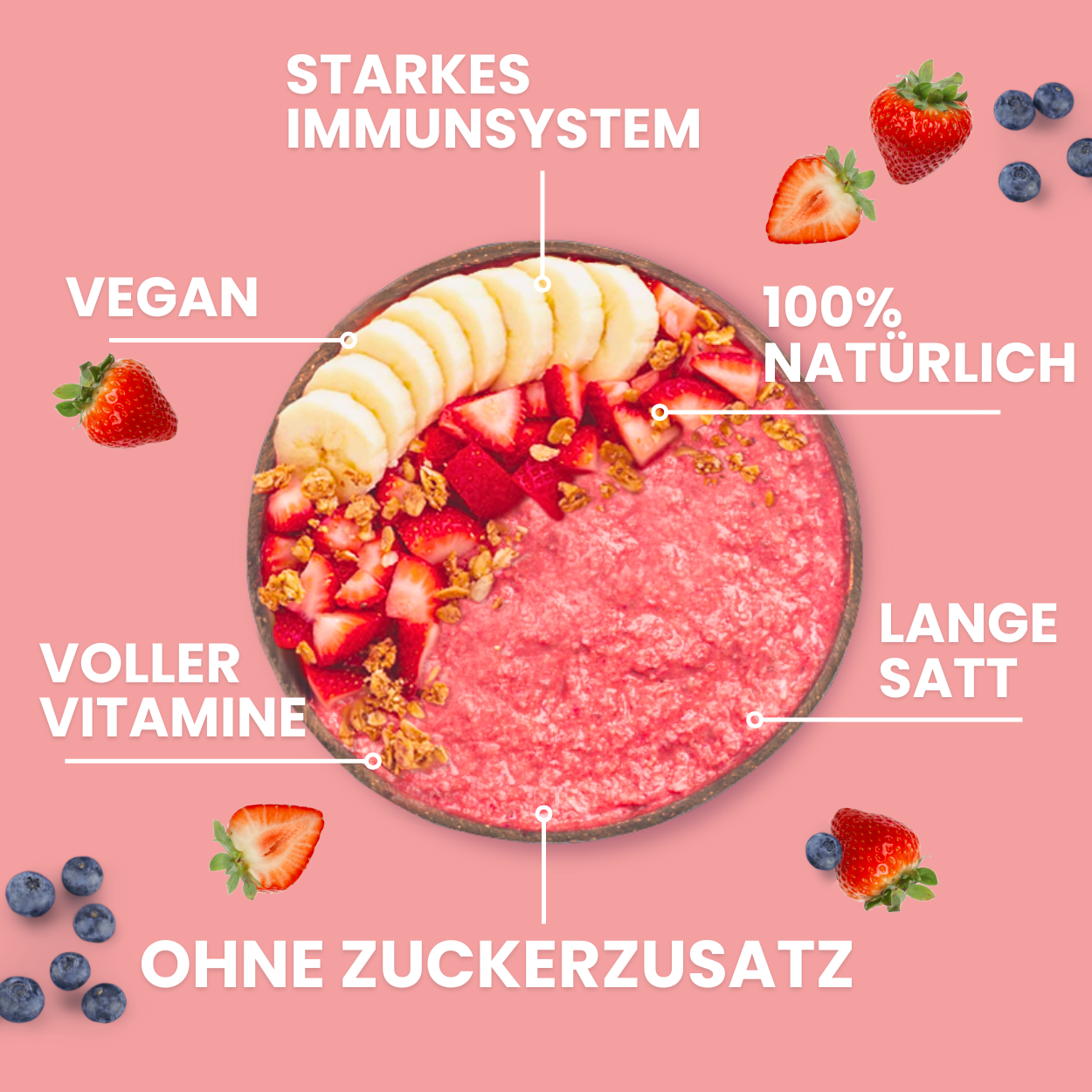
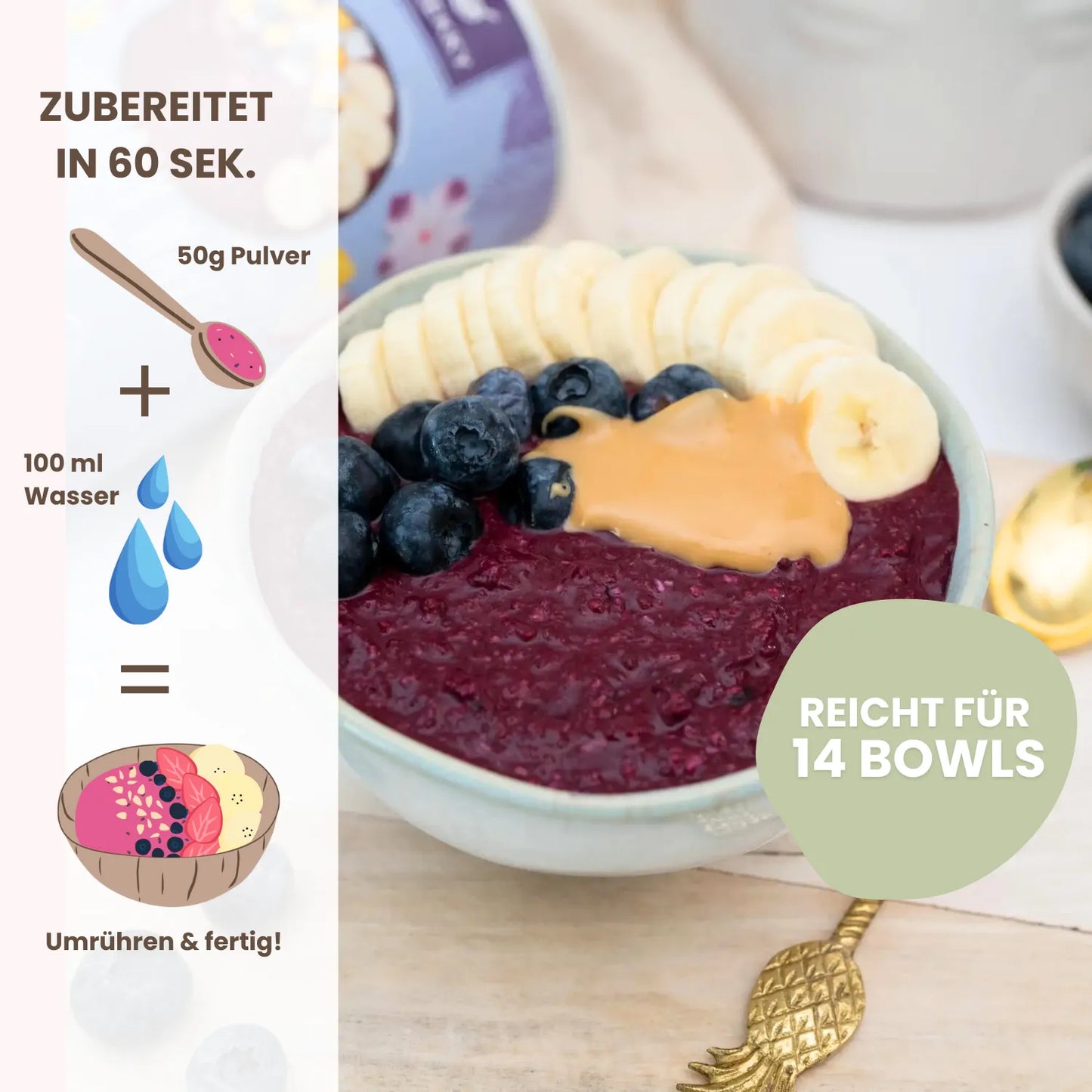


Benefits of a protein-rich breakfast
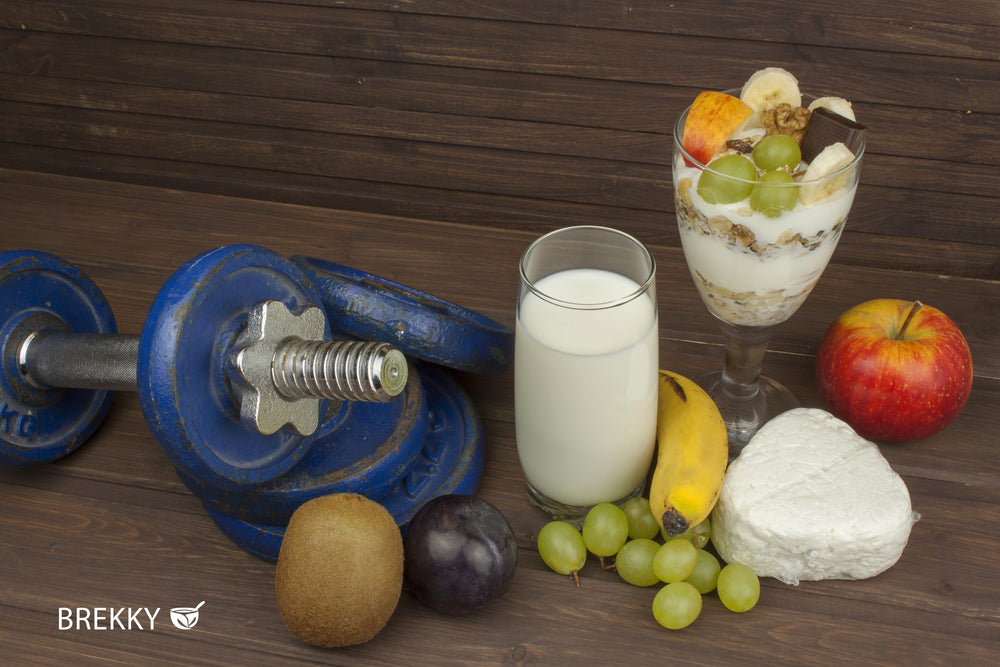
Effects on muscle mass and regeneration
Muscles are essential for your body, and not just for aesthetic reasons. Muscles help stabilize your skeletal system, consume energy, and ensure an upright posture. If you exercise regularly, a protein-rich breakfast can boost your recovery. Muscles that have been used overnight or are already building muscle receive important amino acids that are essential for repair processes. These amino acids are the "building blocks" of protein and help repair minor damage to muscle fibers, for example, caused by training.
Even if you're not actively doing strength training, you'll benefit from a good protein intake. After a certain age, you'll continually lose muscle mass if you don't maintain it. Starting your day with a protein-rich breakfast can help counteract age-related muscle loss. Remember, it's never too late to learn more about nutrition and establish positive habits. Even small steps—like a protein breakfast—can have a big impact in the long run.
Positive effects on blood sugar levels
Stable blood sugar levels are important not only for diabetics, but for anyone who wants to feel energized and balanced. If you eat primarily simple carbohydrates (e.g., white bread with jam) in the morning, your blood sugar can rise quickly and then fall again quickly. The result: rapid hunger and fatigue. A protein-rich breakfast can help reduce these fluctuations. Protein slows the absorption of sugar into the blood, keeping your energy levels more consistent. This way, you'll feel more well overall throughout the morning and avoid the dreaded "craving surge."
At the same time, adequate protein consumption allows for better control over your eating habits. People with more stable blood sugar levels are less likely to snack impulsively. All in all, a protein-rich breakfast is an important building block for a calm start to the day – without a rollercoaster ride in terms of energy and mood.
Optimal amount of protein for breakfast

Distribution of protein intake throughout the day
The distribution of your proteins is just as important as the total amount of your daily protein intake. Many people tend to consume most of their protein at dinner—for example, from meat, fish, cottage cheese, or legumes. However, if you include a protein breakfast, you have the advantage of providing your muscles with building material from the very first meal. The human body cannot utilize unlimited amounts of protein at once. Therefore, it is advisable to consume the total daily amount in several portions.
In addition, the distribution can promote your muscle protein synthesis (MPS). This means that if you consume protein regularly, new muscle fibers are constantly being built and repaired. Eating large amounts of protein only once a day can be less effective. Therefore, incorporating a high-protein breakfast is not only interesting for bodybuilders, but for anyone who values good body composition and health.
The best protein sources for breakfast
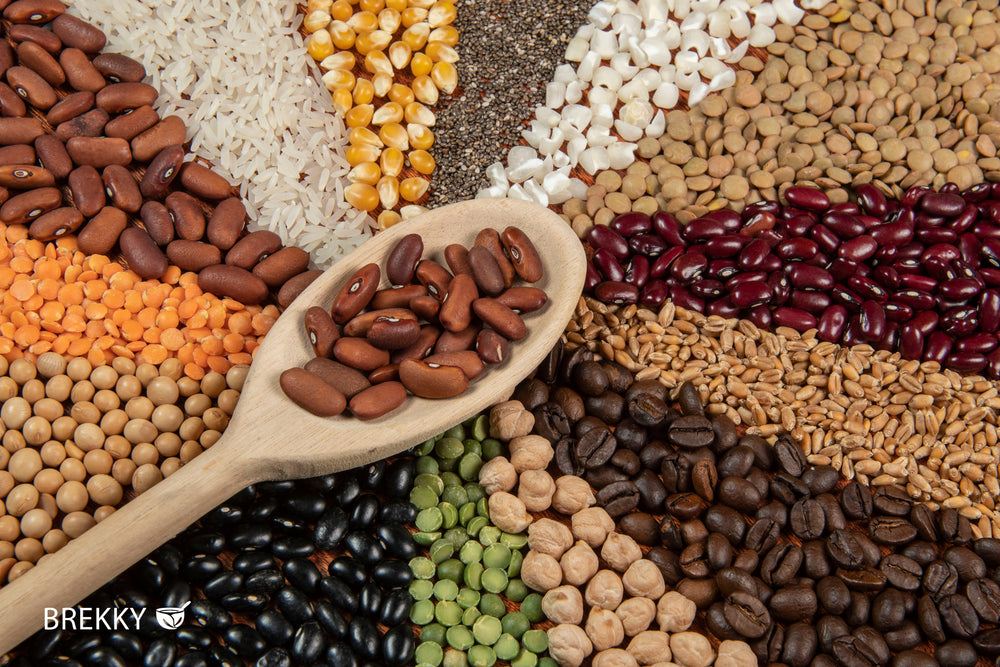
Protein powders and supplements
Sometimes you simply don't have the time to prepare a complex protein breakfast. Protein powders, shakes, or supplements can be a useful addition in these situations. They provide concentrated protein for breakfast and are usually quick to prepare. You can mix protein powder into your smoothie, stir it into porridge, or add it to a blender with yogurt and fruit. The selection is vast: whey protein, casein, soy protein, pea protein, rice protein, and many other varieties are available.
It's important not to view supplements as a replacement for a balanced diet, but rather as a convenient addition. They can be helpful if you're struggling to get enough protein from conventional foods. Also pay attention to quality and ingredients. If you want to avoid additives like artificial sweeteners, you can now find many manufacturers that offer natural alternatives. A shake as a quick fix is perfectly fine, as long as you don't base your entire diet on it. A protein-rich breakfast can easily consist of a shake if it meets your needs, but always try to eat as varied a diet as possible.




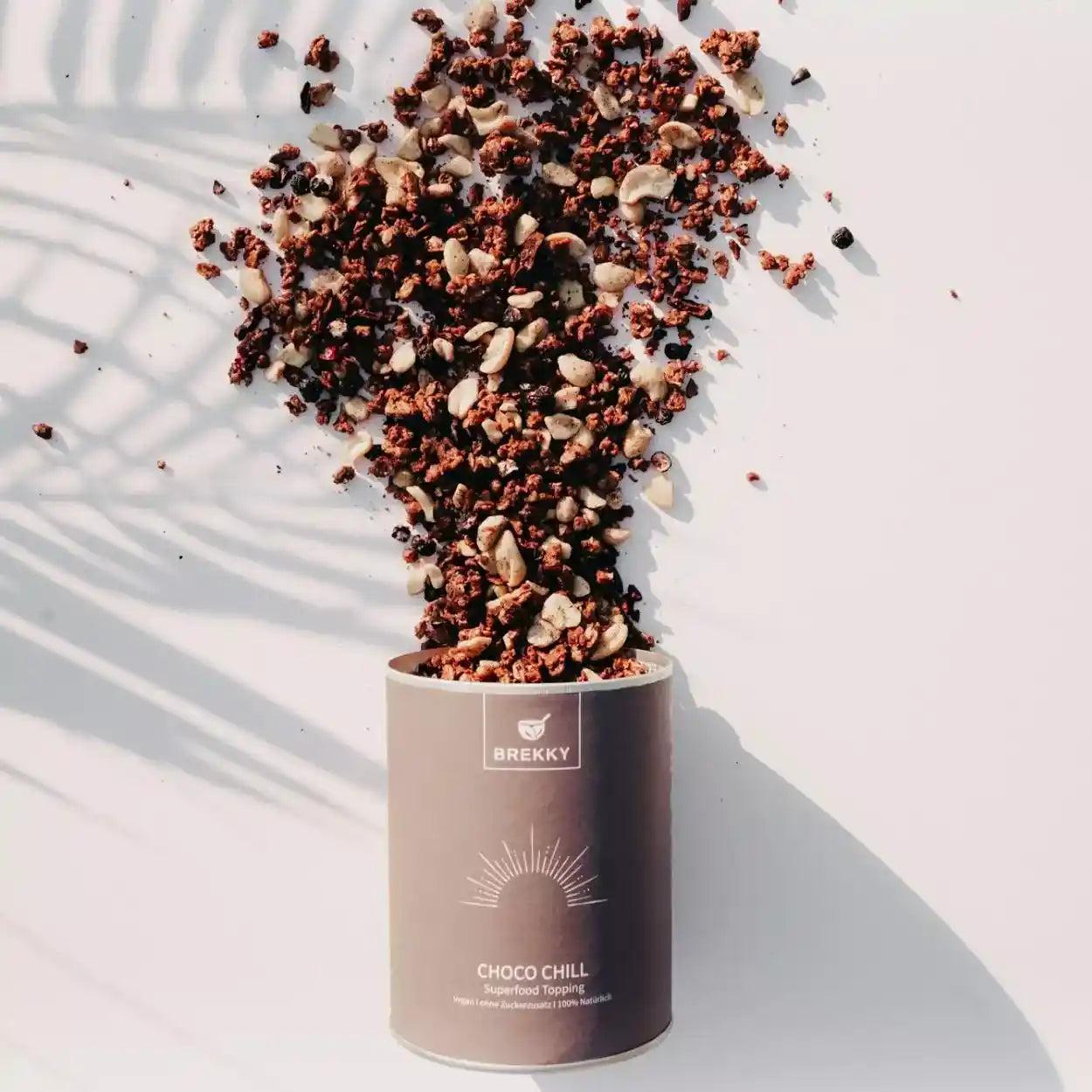
3 Basic Protein Breakfast Recipes

Breakfast classic with more protein
Protein pancakes
- Ingredients (for 1-2 servings):
- 50 g oat flakes (ground into flour)
- 1 scoop of protein powder (flavor of your choice)
- 1 tsp baking powder
- 1 egg
- 100 ml milk or plant milk
- pinch of salt
Preparation :
Mix oat flour, protein powder, baking powder, egg, and milk into a batter. Heat a nonstick pan and add batter in batches. Fry the pancakes on both sides until golden brown. Serve them with quark and fruit or with nut butter and enjoy a classic breakfast dish with added protein.
If you try all these recipes, you'll realize how versatile the best protein breakfast can be. Whether you prefer sweet or savory, a protein breakfast isn't a contradiction in terms; it can be varied to suit your taste.
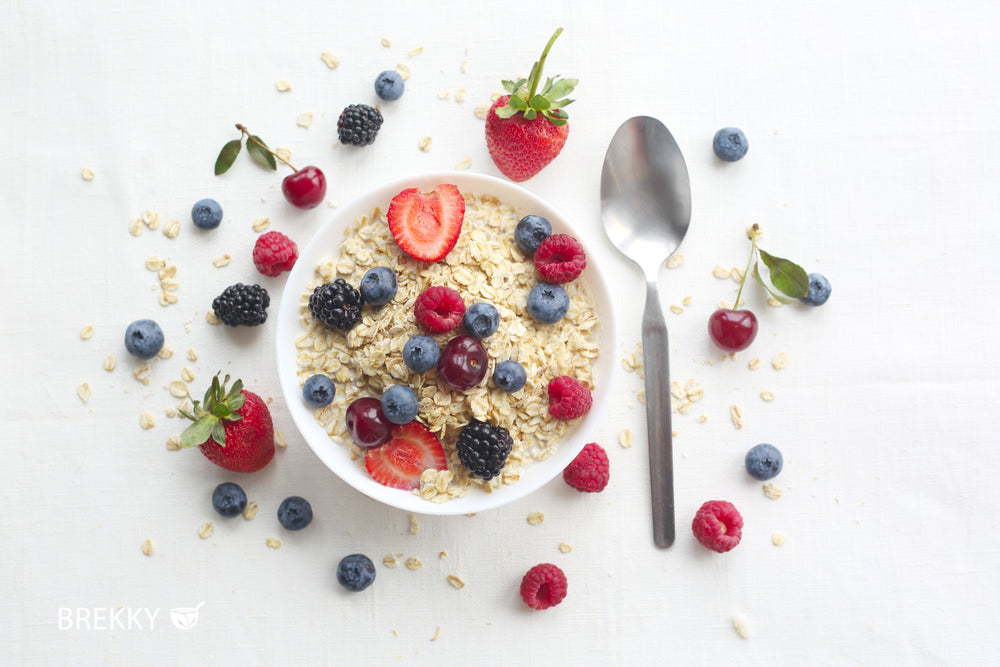
Quick basic recipe for everyday use
Protein porridge with topping
- Ingredients (for 1 serving):
- 50 g oat flakes
- 200 ml milk (or plant milk)
- 1 scoop of protein powder (e.g. whey or vegan protein)
- 1 tsp flaxseed or chia seeds
- A little cinnamon or vanilla
- Topping of your choice: berries, banana, nuts
Preparation :
Heat the milk in a saucepan and stir in the oats. Add the protein powder, seeds, and spices and let it simmer briefly until it reaches the desired consistency. Finally, add your toppings, if desired. The result is a quick, easy breakfast with plenty of protein that will keep you full for a long time.
Savory vs. sweet protein breakfast
Savory: Protein omelet with vegetables
- Ingredients (for 1 serving):
- 3 eggs (or 2 eggs + 2 egg whites)
- 100 g vegetables (e.g. peppers, zucchini, tomatoes)
- 50 g low-fat quark or cottage cheese
- Salt, pepper, herbs of your choice
Preparation :
Cut the vegetables into small pieces and fry them briefly in a pan. Whisk the eggs with quark, salt, and pepper. Pour the mixture over the vegetables and cook the omelet over medium heat until golden brown. This makes for a heartier, protein-packed breakfast that's perfect with a slice of whole-grain bread or a small salad.
Sweet: Quark bowl with berries
- Ingredients (for 1 serving):
- 150 g low-fat quark or skyr
- 50 g berries (e.g. blueberries, raspberries)
- 1 tbsp honey or maple syrup (optional)
- 1 tbsp flaxseed or chopped nuts
Preparation :
Mix the quark in a bowl, add berries and sweetener, and sprinkle with flaxseed or nuts. You have a protein-rich breakfast that tastes light and fresh.


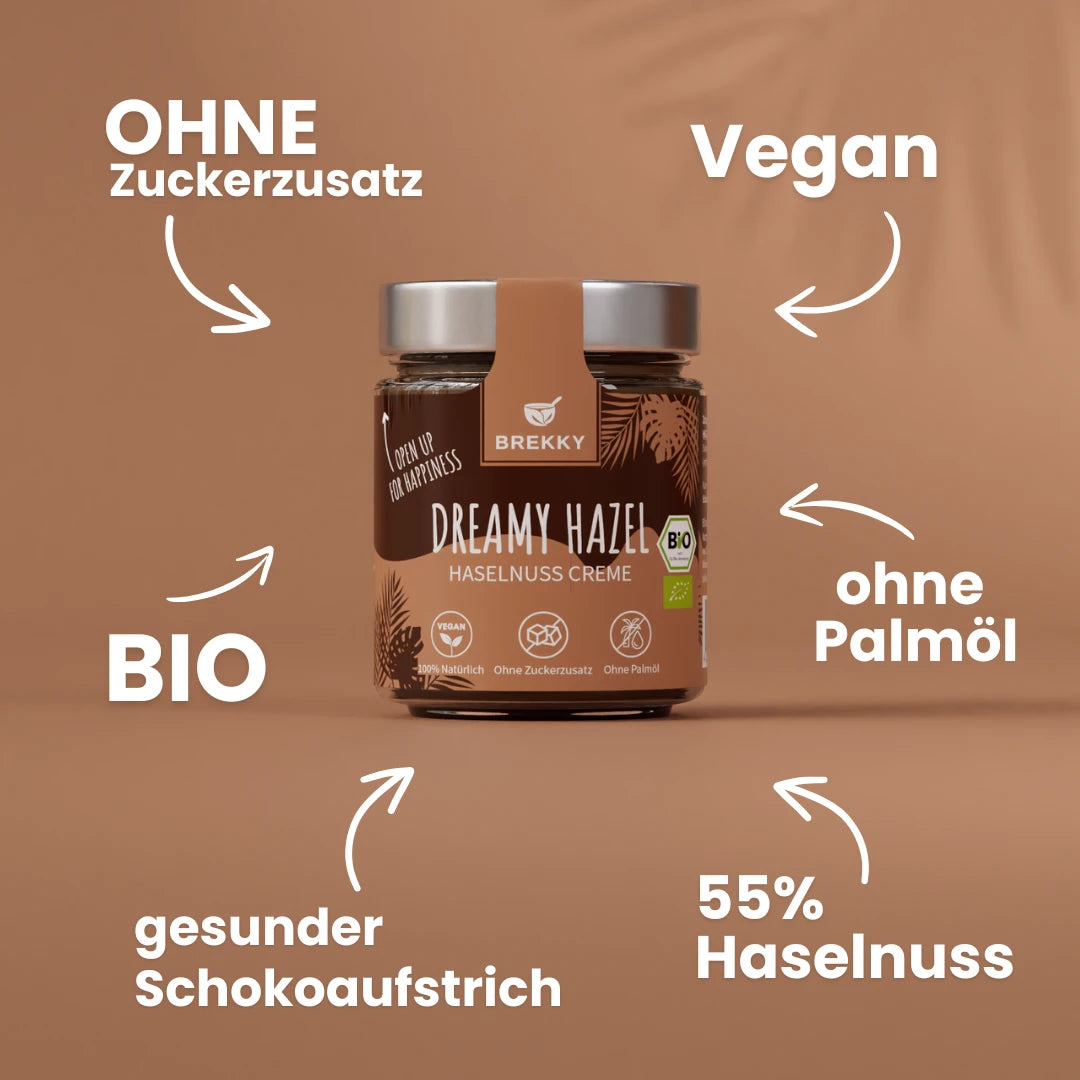
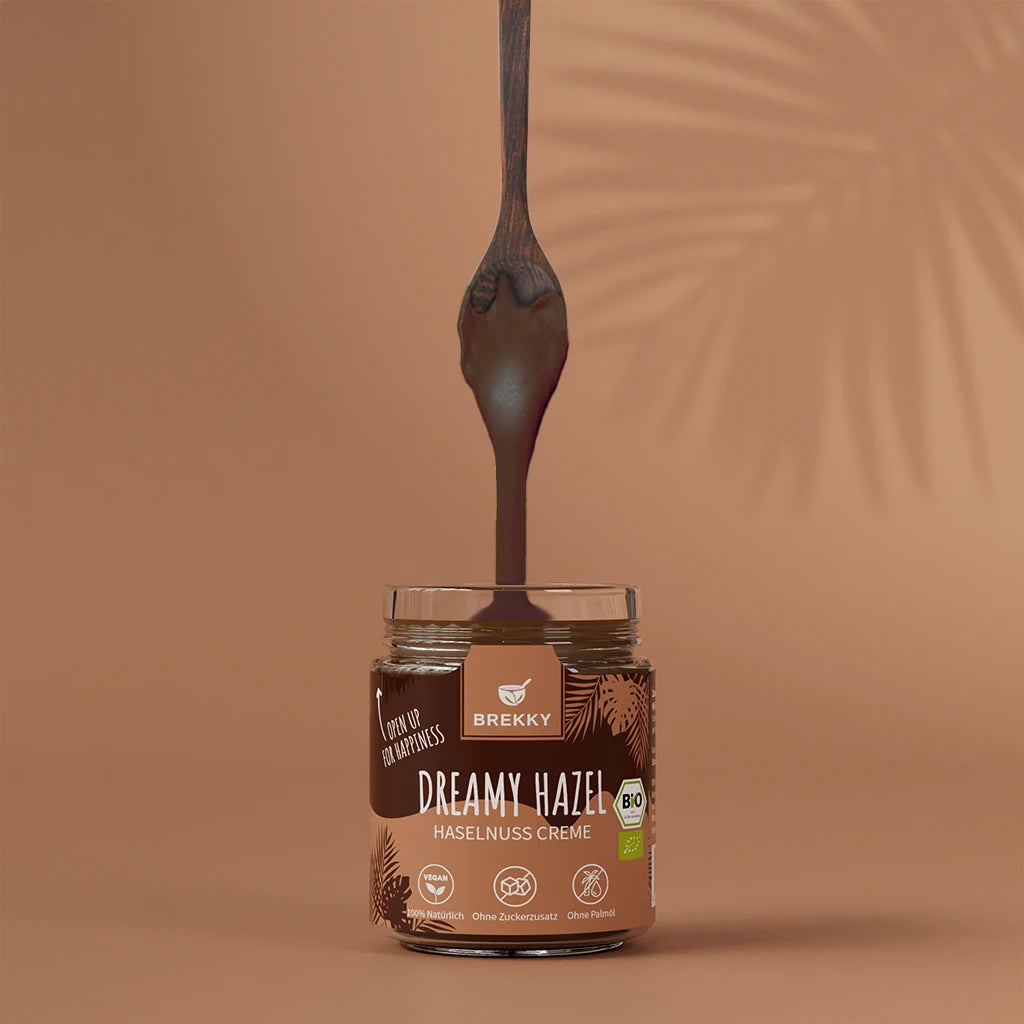

Protein breakfast for different diets
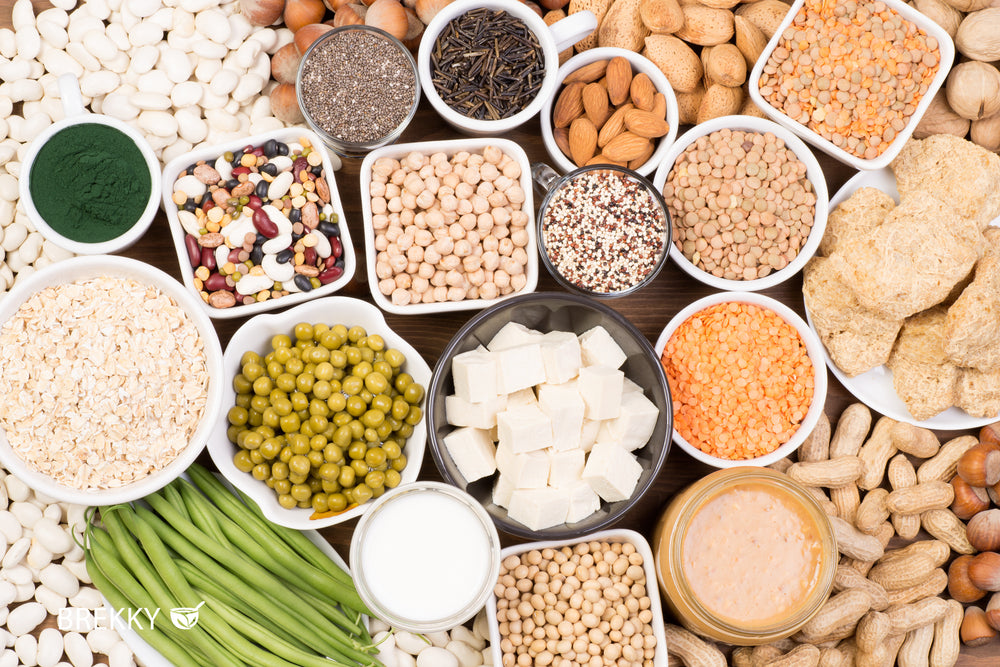
Gluten-free protein breakfast ideas
Gluten-free options are especially important for people with celiac disease or gluten intolerance. Typical grains like wheat, rye, and barley are taboo. However, you can still enjoy a protein-rich breakfast by choosing gluten-free products like rice flakes, buckwheat, quinoa, or millet. One example is porridge made from buckwheat flakes, which you can enrich with plant-based protein powder. Pancakes made from gluten-free flour (e.g., buckwheat or rice flour) combined with eggs and milk alternatives are also delicious.
If you enjoy bread, you can try store-bought gluten-free bread or bake your own. Top it with protein-rich spreads, hummus, tofu, or quark (if you can tolerate dairy products). This way, nothing stands in the way of a high-protein breakfast, even without gluten.
Lactose-free alternatives
Although low-fat quark, skyr, and yogurt are great sources of protein, some people have difficulty lactose tolerance. There are now numerous lactose-free products available, such as lactose-free milk, yogurt, and quark. Plant-based alternatives based on soy or almonds can also help you enjoy protein breakfasts without discomfort. When purchasing these alternatives, make sure they are unsweetened, if possible, to avoid hidden sugars. This way, even if you're lactose intolerant, you can put together a protein breakfast that's both delicious and nutritionally complete.
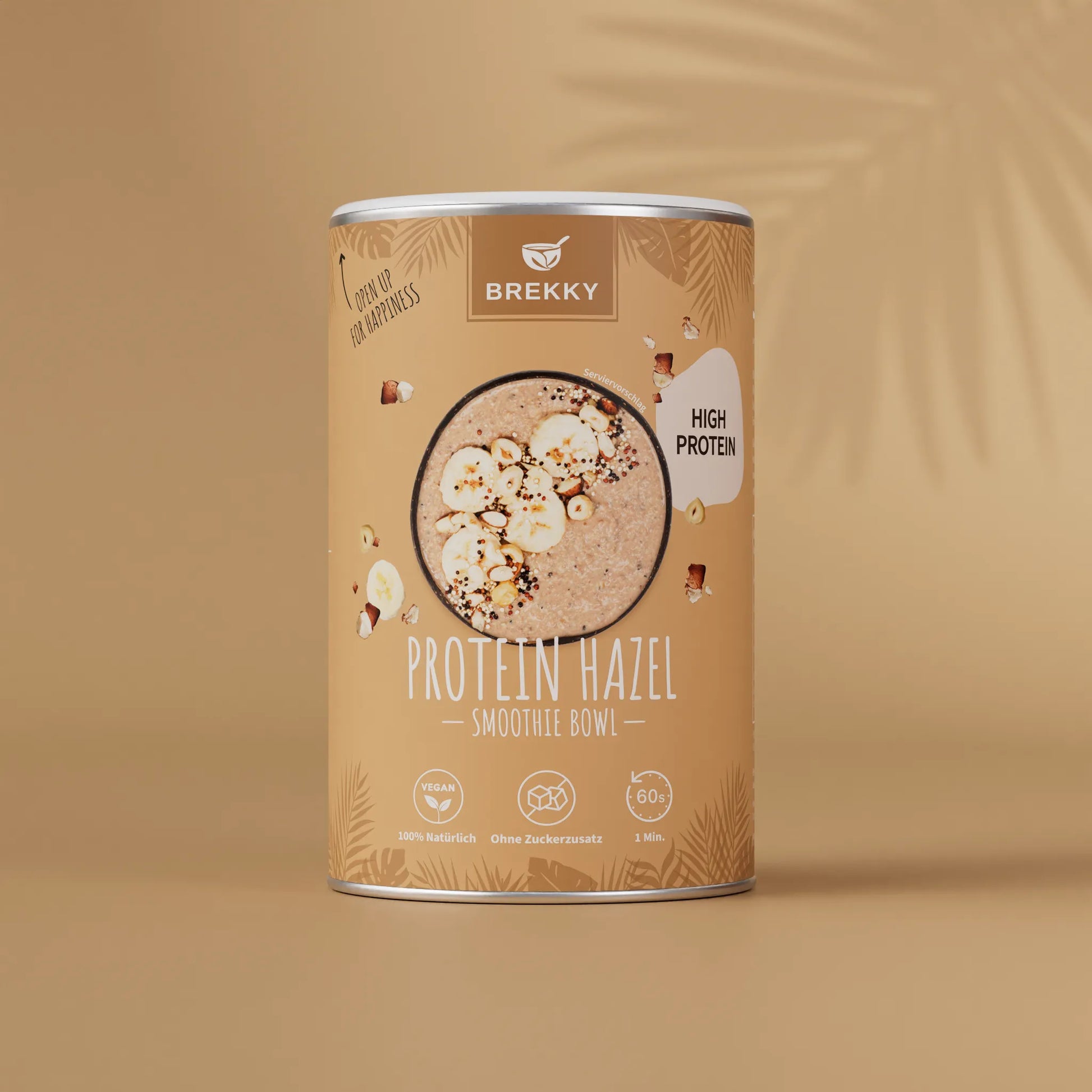
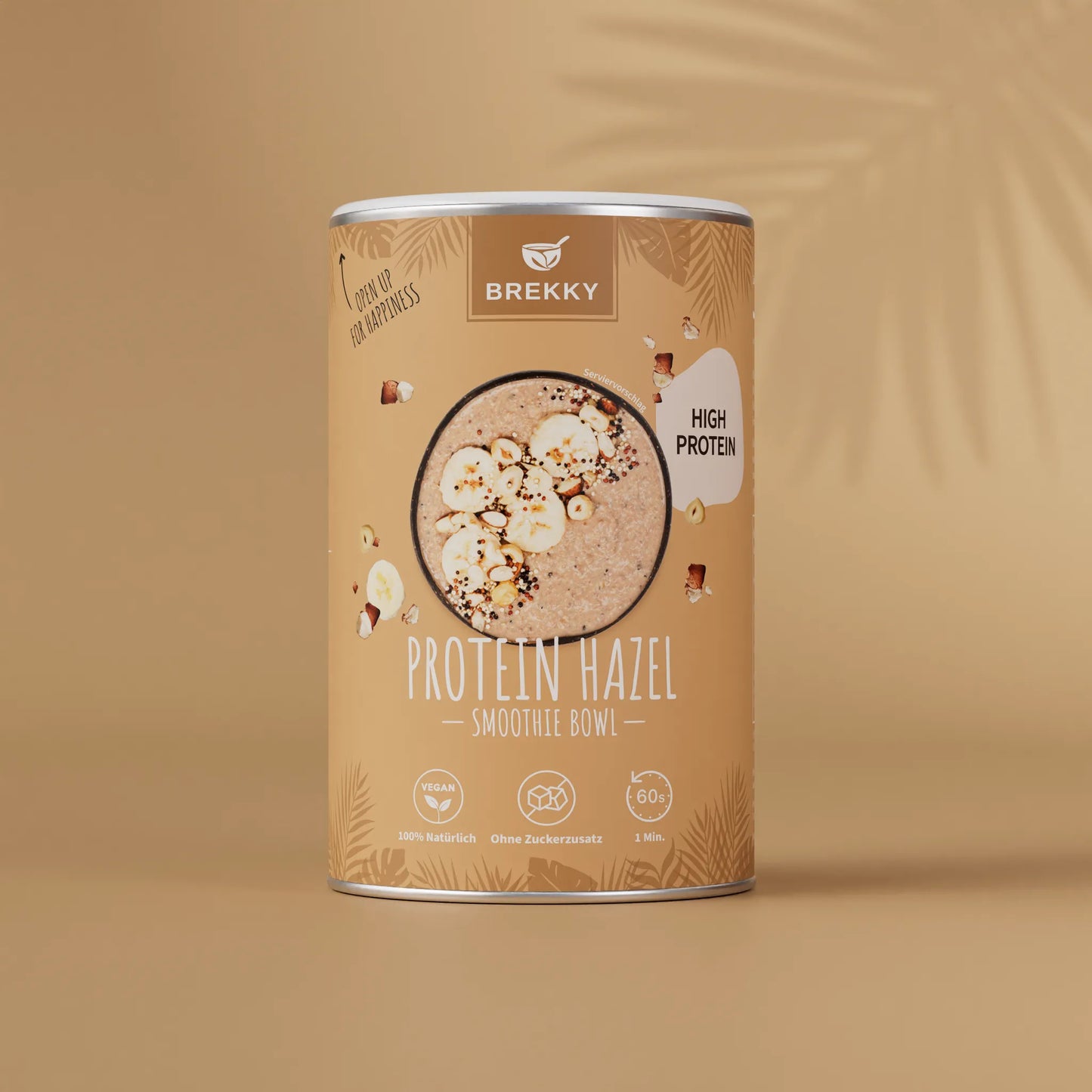
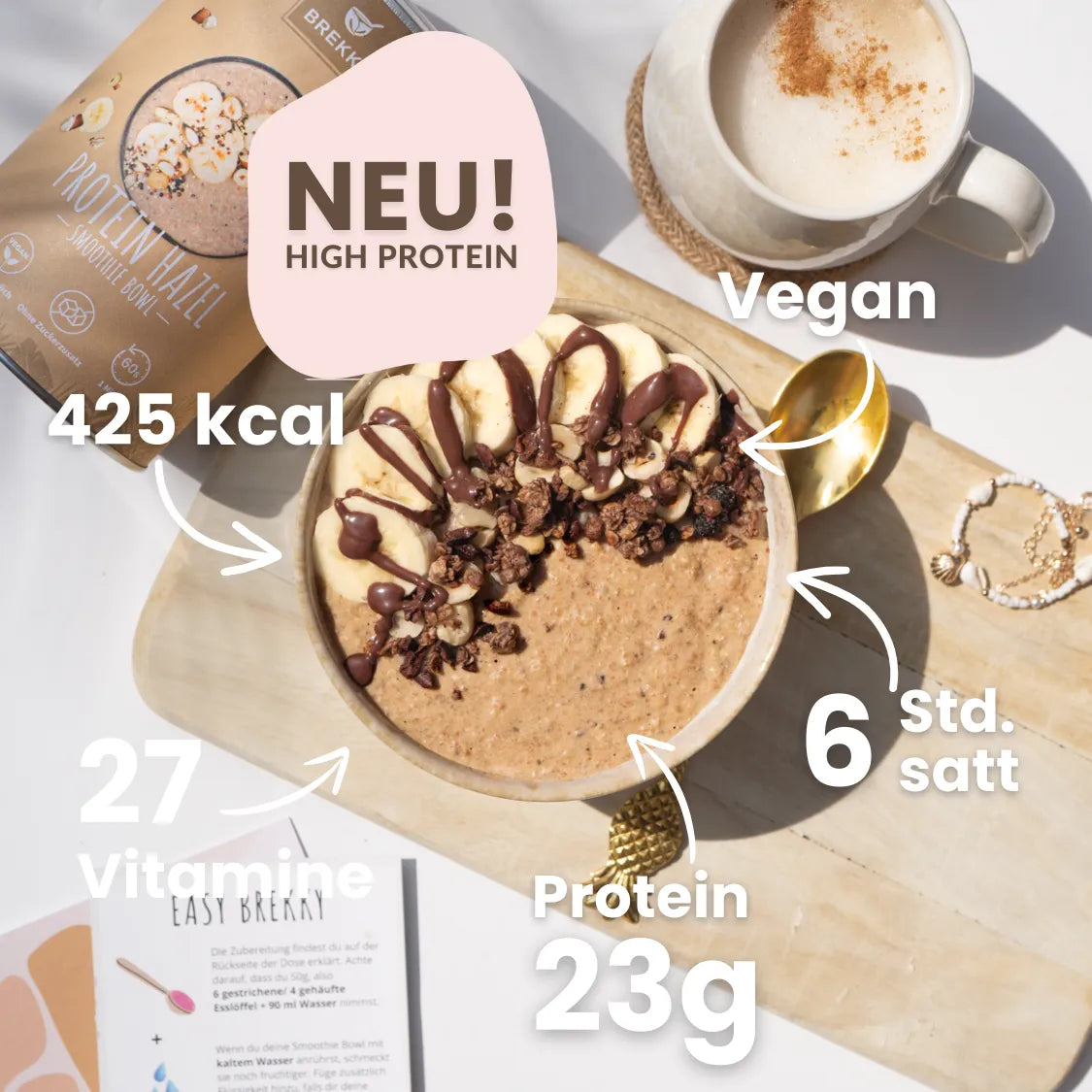
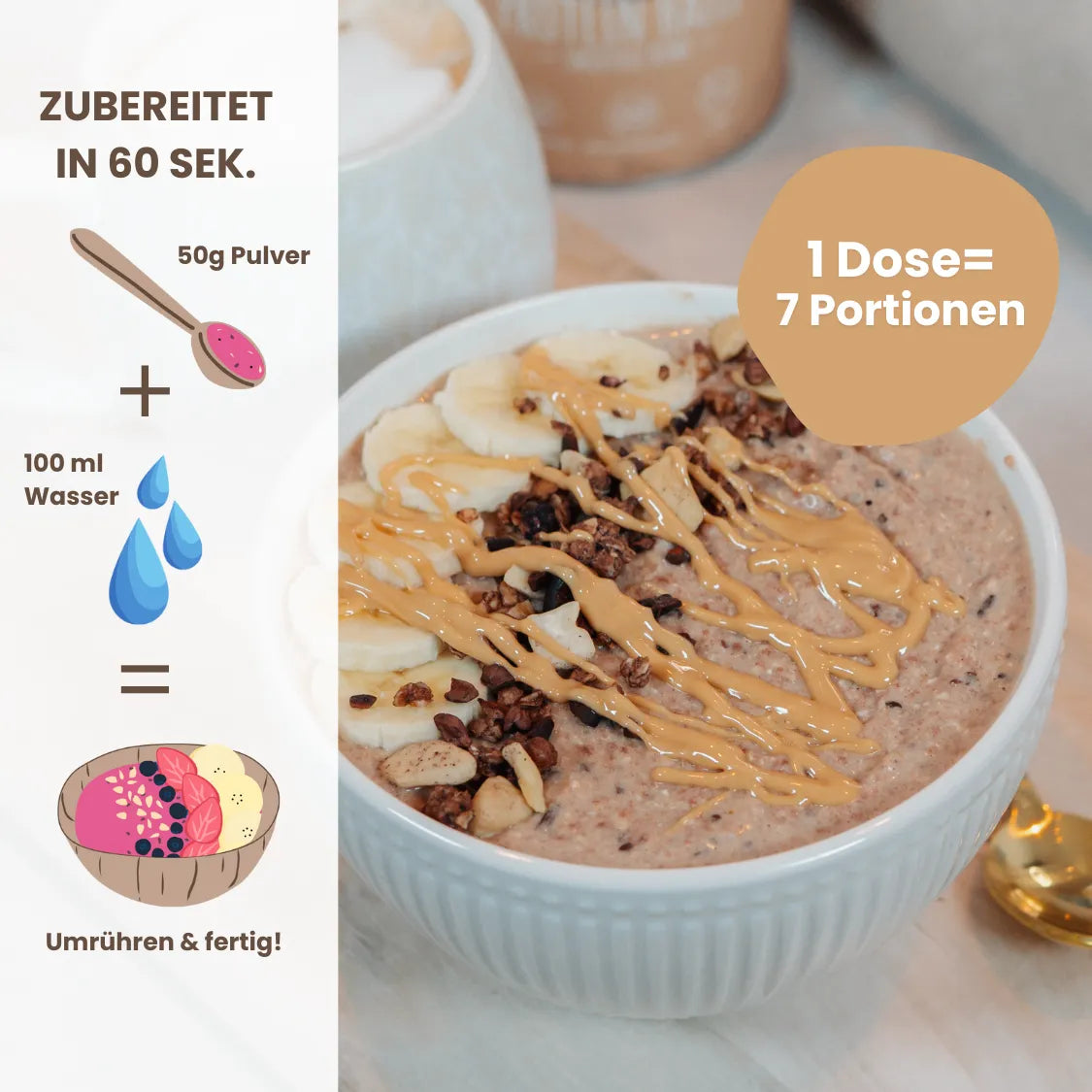

Practical tips for everyday life
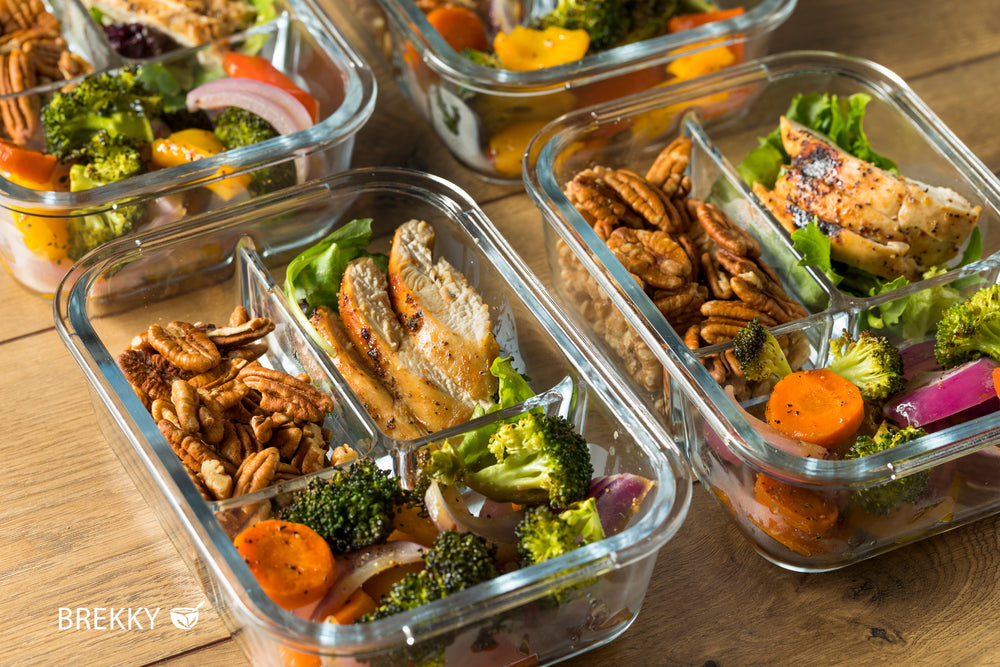
Options for working people
Especially when your workday is hectic, you need ideas that are quick and easy to implement. A protein breakfast doesn't have to be complicated: A boiled egg, a slice of whole-grain bread with cottage cheese and turkey breast, a cup of lactose-free skyr, or a shake on the go are all good examples. The important thing is to have a plan and shop for your ingredients ahead of time. If you invest an hour on Sundays in preparing your breakfast meals for the week, you'll save yourself a lot of stress during the week.
Even in offices without a large kitchen, simple meals can be prepared. For example, take a few slices of tofu, hummus, and fresh vegetables with you. This allows you to quickly whip up a protein-rich breakfast. If you like something sweet, you can bring low-fat quark with fruit and some oatmeal in a sealable container. A quick stir, and you've got protein for breakfast without much effort.
Cheap protein breakfast ideas
Protein-rich foods don't have to be expensive. Eggs, low-fat cottage cheese, and oatmeal are often inexpensive and provide plenty of protein. For plant-based products, you can use legumes like lentils or beans, which also offer excellent value. Buy seasonal vegetables and fruit; they're usually cheaper and contain more nutrients. If you want to use protein powder, you can often save money by buying larger packages online. Just keep an eye out for special offers and compare prices across different brands.
You'll see: A protein-rich breakfast isn't just for those on a budget; it can be incorporated into any lifestyle. Just plan ahead and check out which protein-rich products are seasonally affordable. This will help you regularly put the best protein breakfast on the table without putting a big strain on your wallet.


